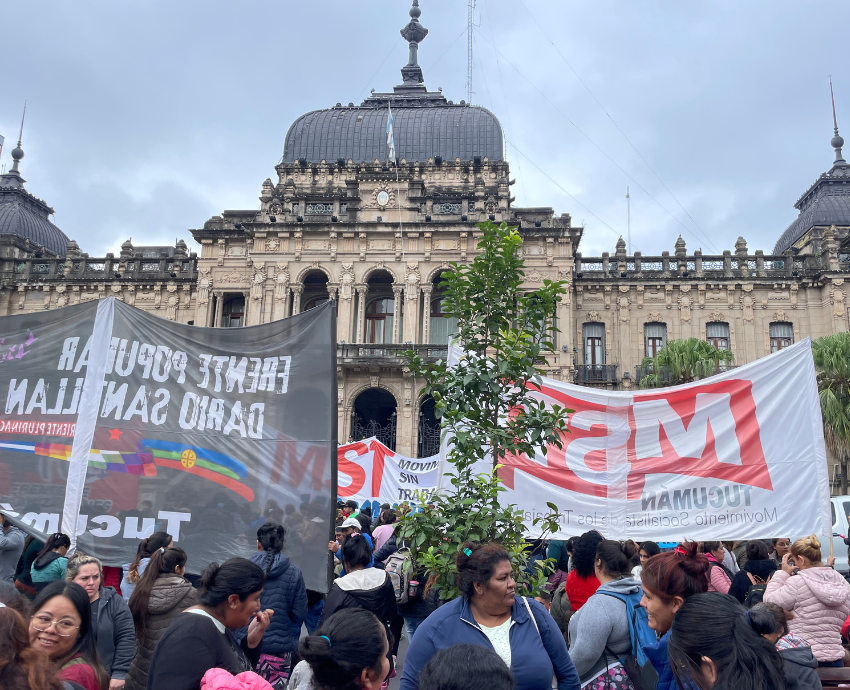
Since taking office in December, far-right Argentine President Javier Milei has embarked on a program of public spending cuts, leading to suffering for millions. But his neoliberal reforms and severe austerity are being met with growing grassroots resistance, with several nationwide demonstrations in a matter of weeks.
The latest was a 24-hour general strike called on May 9 by the General Confederation of Labour — the country’s biggest trade federation with about 7 million members — to protest Milei’s Ómnibus Bill. The reforms, currently being debated in the Senate, would roll back worker’s rights, open the door to privatisation of public services and further deregulate the economy.
The general strike is the second since Milei took office, with workers in the transport, education, health, banking and construction industry taking action.
The Milei government has faced growing grassroots opposition to his attacks on public services, like pensions and universities.
Thousands took to the streets on May 7 across the country to protest the government, particularly its funding cuts to community soup kitchens that have forced many to close. They are a necessity in a country where the poverty rate has risen from 44.7% to 57.4% since Milei took office.
In San Miguel de Tucumán, hundreds of people from various social organisations and leftist groups marched to the main square, chanting “bread, work, healthcare and education”. Speakers at the rally condemned the government’s attacks on worker’s rights, privatisation of public services and neoliberal policies that have worsened the cost-of-living crisis, and called for an indefinite general strike.
Hundreds of thousands marched on April 23 in defence of public universities, which Milei slashed funding to by 80%, in real terms.
While Milei has continued to dismiss and downplay the mobilisations, widespread discontent is growing to his program of severe austerity.